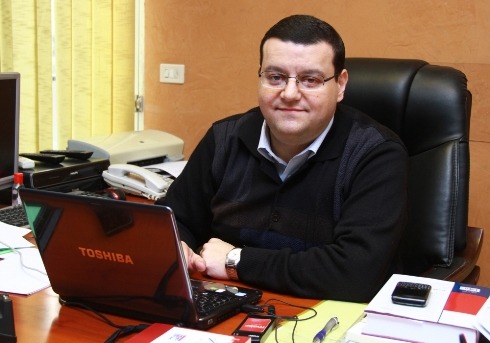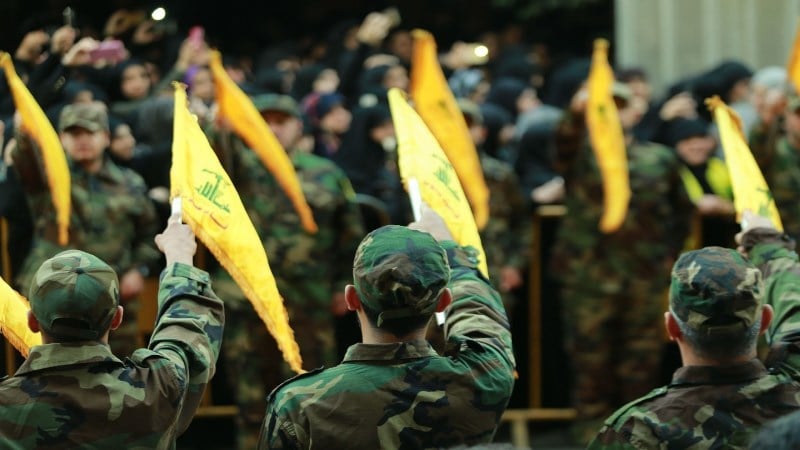Aoun’s pro-Hezbollah stance increases risks for Lebanon
Rami Rayess / The Arab Weekly
23 أكتوبر 2017

There is growing speculation in Lebanon as to how regional developments might unfold and what this could mean for the country. As tensions ratcheted up between Washington and Tehran, many in Lebanon wondered if it would be Beirut that again pays the price.
This is hardly paranoia. The severity of the measures imposed by the Trump administration on Hezbollah, a Lebanese political party and Iran’s strongest regional ally, provided ample cause for concern. There is no real indication US sanctions on Hezbollah will stop there or will grow to include the banking sector, one of Lebanon’s few success stories, and other citizen-owned enterprises in Lebanon.
Tehran has been a vigorous supporter of Hezbollah’s growth in Lebanon since 1982, supplying it with arms and nurturing it until its military and political influence stretched beyond Lebanon’s borders. Any doubts over this line were emphatically dispelled in 2011 when Hezbollah stepped away from its traditional role as a counter to Israel and threw itself into the Syrian civil war.
The so-called resistance axis (including Tehran, the Syrian regime and Hezbollah) that emerged from that bloody conflict has repeatedly championed its astounding victories in the Syrian theatre and called for other parties within the region to base their foreign policy assumptions on them and act accordingly.

Of course, the very concept of those astounding victories likely needs to be revisited and perhaps some time given to a death toll that stretches to half a million Syrian citizens and the displacement of more than 7 million within and beyond Syria.
Every day that Hezbollah operates outside of Lebanon’s borders the danger grows. Sticking assiduously to an agenda written for it in Tehran, Hezbollah has been fierce in its condemnation of Saudi Arabia and its policies throughout the Middle East. However, this localised rebellion looks soon to be checked, with every indication pointing towards a Saudi return to the Lebanese political scene.
Riyadh recently invited senior Lebanese officials to visit, probably to try to return to it a political balance that has been gradually shifting away from the kingdom for the last few years.
Within Lebanon, the country’s independent relations with regional powers that have been a bulwark against external aggression also look to be ending. As Hezbollah becomes more enmeshed in the Syrian war, so too do the assumptions of the resistance axis that see the normalisation of relations with Damascus as Lebanon’s natural next step.
Once Beirut has aligned with Syrian President Bashar Assad, there will be few chances to retreat to the safer ground of past neutrality.
Pressure on Lebanon comes from within as much as from without. Lebanese President Michel Aoun, a strong ally of Hezbollah, has been defending the possession of the party’s weapons as a necessary aspect of Lebanon’s defence, a policy that starkly contradicts Lebanon’s strategy of rebuilding the state apparatus as a means of confronting external threats. As a policy, it threatens to establish Lebanon as a legitimate military target and brings Beirut one step closer to the brink.
With that said, Israel never really waited for a pretext to attack Lebanon during previous invasions (1978, 1982, 2003 and 2006). Still, the government’s support for Hezbollah dovetails neatly with Israeli preconceptions of the country’s attitude towards it. Consequently, during any future invasion, there would be no need for Israel to differentiate between targeting Hezbollah or the various aspects of the Lebanese state not previously destroyed in past wars.
Until recently, Hezbollah’s preservation of its second-strike ability against an Israeli incursion has appeared to work as more of deterrent than a necessity. However, as US President Donald Trump embarks on an aggressive new policy direction regarding both Iran and Israel, the risk to Lebanon and its people increases.
The circumstances are new; the situation is not. Lebanon remains at a crossroads. Will developments again reduce it to the condition of a battlefield or will some turn of fate allow it to continue upon its precarious, occasionally troubled, but still peaceful path?
 عن أمل جنبلاط المتجدد: لبنان يستحق النضال
عن أمل جنبلاط المتجدد: لبنان يستحق النضال
 صحافيون أم عرّافون!
صحافيون أم عرّافون!
 ماذا يجري داخل أروقة بيت الكتائب المركزي؟
ماذا يجري داخل أروقة بيت الكتائب المركزي؟


 عن الخرائط التي تُرسم والإتفاقات التي تتساقط!
عن الخرائط التي تُرسم والإتفاقات التي تتساقط!
 “الإنحراف في الحياة”/ بقلم كمال جنبلاط
“الإنحراف في الحياة”/ بقلم كمال جنبلاط
 هاشتاغ #صار_الوقت يحل أولاً في حلقة جنبلاط
هاشتاغ #صار_الوقت يحل أولاً في حلقة جنبلاط
 طاولة نقاش عن أزمة الصحافة في جامعة AUST
طاولة نقاش عن أزمة الصحافة في جامعة AUST
 عبدالله: ليظهر لنا وزير مكافحة الفساد حرصه في صفقات البواخر والفيول
عبدالله: ليظهر لنا وزير مكافحة الفساد حرصه في صفقات البواخر والفيول
 عبدالله: غريب أمر وزارة مكافحة الفساد!
عبدالله: غريب أمر وزارة مكافحة الفساد!

 Comment to Uri Avnery: How Sad What Is Looming Ahead
Comment to Uri Avnery: How Sad What Is Looming Ahead
 “Not Enough!”
“Not Enough!”
 … لمن لم يقرأ يوسف البعيني/ بقلم وسام شيّا
… لمن لم يقرأ يوسف البعيني/ بقلم وسام شيّا
 كمال جنبلاط في مولده الأول بعد المائة: تعاليمه وأفكاره ما زالت الحلّ/بقلم عزيز المتني
كمال جنبلاط في مولده الأول بعد المائة: تعاليمه وأفكاره ما زالت الحلّ/بقلم عزيز المتني
 رئيس حزب/ وليس (… سابقاً)/ بقلم د. خليل احمد خليل
رئيس حزب/ وليس (… سابقاً)/ بقلم د. خليل احمد خليل
 التوازن السياسي في لبنان
التوازن السياسي في لبنان
 لبنان… مشاريع انقلابية مؤجلة
لبنان… مشاريع انقلابية مؤجلة
 جنبلاط وحَمَلة أختام الكاوتشوك
جنبلاط وحَمَلة أختام الكاوتشوك
 Le Liban est un symbole de tolérance
Le Liban est un symbole de tolérance
 Our Automated Future
Our Automated Future
 The True Origins of ISIS
The True Origins of ISIS
 Les Misérables vs. Macron
Les Misérables vs. Macron
 عذراً أيها المعلم/ بقلم مهج شعبان
عذراً أيها المعلم/ بقلم مهج شعبان
 رساله الى المعلم / بقلم ابو عاصم
رساله الى المعلم / بقلم ابو عاصم
 إلى روح القائد والمعلم كمال جنبلاط/ بقلم أنور الدبيسي
إلى روح القائد والمعلم كمال جنبلاط/ بقلم أنور الدبيسي
 أسرار وعناوين الصحف ليوم الجمعة 14 كانون الاول 2018
أسرار وعناوين الصحف ليوم الجمعة 14 كانون الاول 2018














